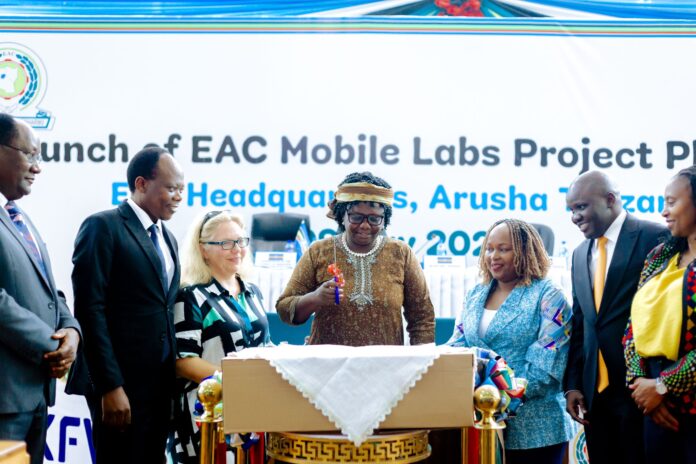
Uganda has cemented its place as a regional health powerhouse after being officially designated East Africa’s Center of Excellence in Virology, a historic milestone that promises to revolutionize the fight against deadly viral diseases such as Ebola, Marburg, and COVID-19.
The announcement was made on Friday, May 9, 2025, during the launch of Phase III of the Regional Network of Reference Laboratories for Communicable Diseases Project in Arusha, Tanzania.
The three-year initiative, running from July 2025 to July 2028, is funded by the German government through the KfW Development Bank at a total cost of €12 million (approximately UGX 50 billion). Of this, €3 million has been allocated to Uganda’s Virus Research Institute (UVRI) to enhance and upgrade its virology research and diagnostic facilities.
Speaking at the event, Dr Joseph Okware from Uganda’s Ministry of Health hailed the recognition as a significant milestone, emphasizing its importance in advancing the country’s leadership in disease surveillance and response across the region.
“Today is a bright and remarkable day for Uganda. We are honored to be receive Phase III of this important project aimed at strengthening laboratory capacity across East Africa,’’ Dr Okware stated.
“Thanks to funding from the German government, €3 million has been allocated to UVRI to elevate it into a Center of Excellence in Virology.”
He explained that virology is the study of viruses and emphasized that having a well-equipped laboratory is crucial for enabling the country to quickly detect and understand viruses during disease outbreaks.
“This lab will now study the genetics of viruses, which is crucial in managing pandemics. Uganda will no longer rely on Europe or South Africa for advanced tests. Everything, including genome testing, will now be done locally at UVRI,” Dr Okware added.
The project will transform UVRI into a leading research hub in East Africa, fostering stronger collaboration between experts in human and animal health.
It will also enhance the region’s capacity for genomic surveillance, enabling more effective monitoring of viral mutations. Additionally, the Democratic Republic of Congo will be integrated into the East African mobile laboratory network.
UVRI will serve all eight EAC member states, offering regional training opportunities, diagnostic support, and scientific collaboration. The upgraded facility will work closely with animal health experts, universities, and global partners to ensure comprehensive disease monitoring.
Uganda now joins the Uganda Cancer Institute as one of the few countries in the region with specialized health research centers. Health officials emphasize that this development is not only a national triumph but also a regional asset.
“This is not just a win for Uganda,” said Dr Okware. “It strengthens our entire region’s ability to respond quickly and effectively to outbreaks, and with improved infrastructure, skilled personnel, and stronger partnerships, we are better prepared than ever.”
Officials also acknowledged potential challenges ahead, including the need for sustainable financing, continuous training of scientific personnel, and effective coordination among partner states. However, with strong international support and a clear implementation plan, the Center of Excellence is expected to deliver lasting impact.














